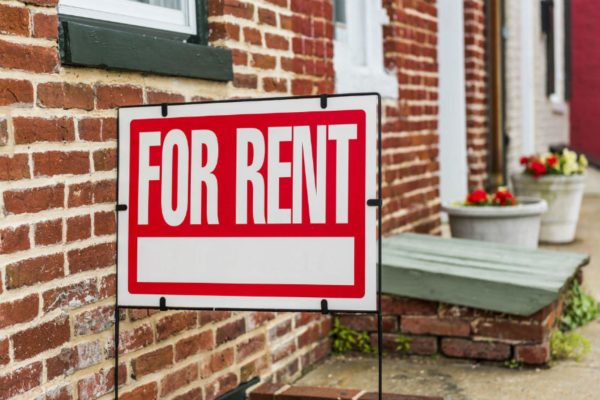Another month of rent has come due for millions of Texas renters amid record job losses. The Texas Supreme Court’s latest order stops evictions for a few more weeks, but meanwhile, back rent and late fees continue to accumulate for many Texans. Unless bold actions are taken by our state and local governments, an unprecedented number of renters could soon lose their place to live.
Although the Texas Supreme Court’s moratorium has helped support tenants teetering on the brink of eviction, the state’s eviction protection policies overall rank poorly in a new Princeton Eviction Lab scorecard. For example, despite the court’s moratorium, landlords can still charge late fees, send eviction notices and file eviction lawsuits, damaging tenants’ credit records and ability to secure replacement housing. And when the moratorium expires May 19, Texas tenants will face one of the swiftest eviction processes in the country.
For Houston — where 54% of residents are renters — the problem could be exacerbated. The city has so far failed to adopt any major protections for renters affected by the pandemic, in contrast to the state’s other three largest cities.
We can do better. State and local officials need to act now to adopt stronger, and longer, eviction protections and help tenants pay their rent.
Many of the state’s 2.2 million low-income renter households were already at risk of losing their homes prior to the COVID-19 pandemic, with one-fifth of renter households paying more than half of their income on rent and utilities. Now, a far greater housing crisis looms in Texas, with more than 1.3 million reported job losses since mid-March.
The three industries with the largest number of unemployment filings — close to half of all reported job losses in the state — also employed many of the lowest income renters in the labor force. For example, about a quarter of these renters work in retail jobs, restaurants and bars, where the average wages for salespersons, food service staffers and cooks in Texas hovered around $22,000 to $28,000 in 2019. Undocumented immigrant workers, who constitute 8.2% of the Texas workforce, are likely to be at even greater risk of eviction.
And more job losses are expected in the coming months.
Although the federal CARES Act provides a moratorium on evictions through most of the summer — as well as other important tenant protections including a ban on late fees — the law’s protections only cover the estimated 25% of rental properties with federally backed mortgages or those with federal subsidies.
A largescale displacement of renters will have ripple effects throughout our health care systems and the Texas economy, making it even harder for the state to recover from the pandemic. But it’s not too late for our elected officials to act.
We have been tracking housing policies adopted across the state and country in response to COVID-19, and there are a number of best practices that could be adopted here.
The state should enact a broader statewide moratorium on evictions to run concurrently with the 120-day protections in the federal CARES Act. The moratorium should cover not only eviction proceedings but also eviction notices and filings, as well as late fees. There should also be grace periods so tenants can catch up on their rent, as both Dallas and Austin require.
Protections in the eviction process, however, are not enough. According to research by the National Low Income Housing Coalition, $100 billion in emergency rental housing assistance is needed nationwide to avoid creating a “financial cliff” when federal and local eviction moratoria expire.
To help meet this need, the state and its largest cities and counties should tap into the $11.2 billion they are receiving from the federal Coronavirus Relief Fund to set up an emergency rental housing assistance program. The rental assistance program should prioritize renters ineligible for unemployment benefits or otherwise at high risk of being displaced.
Texas cities and counties should also expand the types of resources dedicated to housing assistance for renters, and ensure funds are available regardless of immigration status. For example, the City of San Antonio is using local tax increment finance dollars to support its new $25 million COVID-19 Housing Assistance Fund.
Now is the time to adopt bold measures to support our state’s renters. Failure to act will undermine recovery throughout Texas.
Heather K. Way is a clinical professor of law and directs the Entrepreneurship and Community Development Clinic at The University of Texas at Austin.
Elizabeth J. Mueller is an associate professor of community and regional planning in the School of Architecture at The University of Texas at Austin.
A version of this op-ed appeared in the Houston Chronicle.




